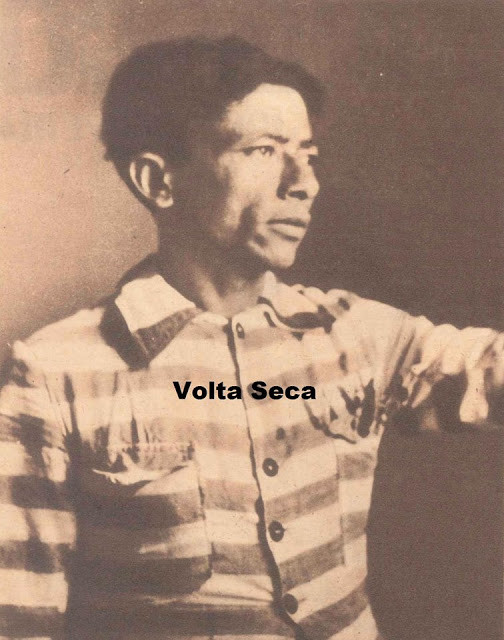
Volta Sêca
1911-1997
Latin, Folk and World
A.k.a. Antonio Alves dos Santos
He was born in Itabaiana, son of Manuel Antonio dos Santos and Arminda Maria dos Santos, was the 6th of the 13 children of the couple, was born on March 18, 1918. Volta Seca had joined the band of Lampião in 1929, at age 11. Volta Seca left the world due to the mistreatment of the stepmother, violent person who constantly beat the stepsons. He traveled alone, the sertões of Sergipe and Bahia, until he found Lampião in Goroso, in the municipality of Bom Conselho. For being smaller, Volta Seca had to wait the majority, 21 years to go to trial. Transferred to Queimadas (BA), in order to respond for bank crimes at that location. Sentenced to 145 years in prison, in the first trial, Volta Seca was punished for 30 years in prison. Later, the process was revised and the sentence reduced to 20 years. In 1954, Volta Seca was pardoned by President Getúlio Vargas. In freedom, illiterate and a man marked by society, he was faced with a great challenge. He married and lived in the Northeast, when he received an invitation to live in São Paulo, by the filmmaker and director Lima Barreto, to watch and criticize the film, O Cangaceiro (1953), through a gratuity. The former cangaceiro condemned the scene in which Lampião whips a goat in the face. He says that in the backlands, you do not do that with a man, you kill yourself, because a man's face in the Northeast is sacred. Thanks to the new friendships, he got a job on the Leopoldina Railway, where he worked for several years. Singer and composer in 1957, Volta Seca recorded for Continental an LP, with only 8 tracks, 'As Cantigas De Lampião', with instrumentation of the conductor Guio De Moraes. In 1959, he had the baião "A Laranjeira" recorded by Zé Do Baião, and the following year, by José Tobias, the toada "Se Eu Soubesse".
Genres
Discography
| Title | Artist | Year | Type |
|---|---|---|---|
| Cantigas De Lampeão | Volta Sêca | 1957 | Album |
